By 2035, virtually all new electric freight trucks – including long-haul – will be cheaper to run than diesel trucks while driving as far and carrying as much, a new study suggests.
The research, conducted by TNO (Toegepast Natuurwetenschappelijk Onderzoek) on behalf of Transport & Environment (T&E) and Agora, comes as the European Commission will make a proposal to tighten climate targets for heavy-duty vehicles in the coming months.
Furthermore, the TNO report claims that in most cases, electric trucks will beat diesel trucks on the total cost of ownership even sooner.
Fedor Unterlohner, clean freight manager at T&E, said: “Cheaper, stronger, further. EU lawmakers can set a 2035 deadline to reach zero emissions sales with confidence that electric rigs will beat diesel trucks every time. This will cut costs for hauliers and clean up trucking while allowing European truck makers to retain their global leadership.”
But an increased EU CO2 target for truck makers of -65% in 2030 is also needed if zero emissions freight trucks are to reach almost 100% of sales five years later, T&E said. Sticking with the current EU climate targets for truck makers would result in 1.3 million fewer zero-emission trucks on the road in 2035.
T&E said stronger EU standards from the 2020s onwards would force manufacturers to deliver on their voluntary commitments to electrify.
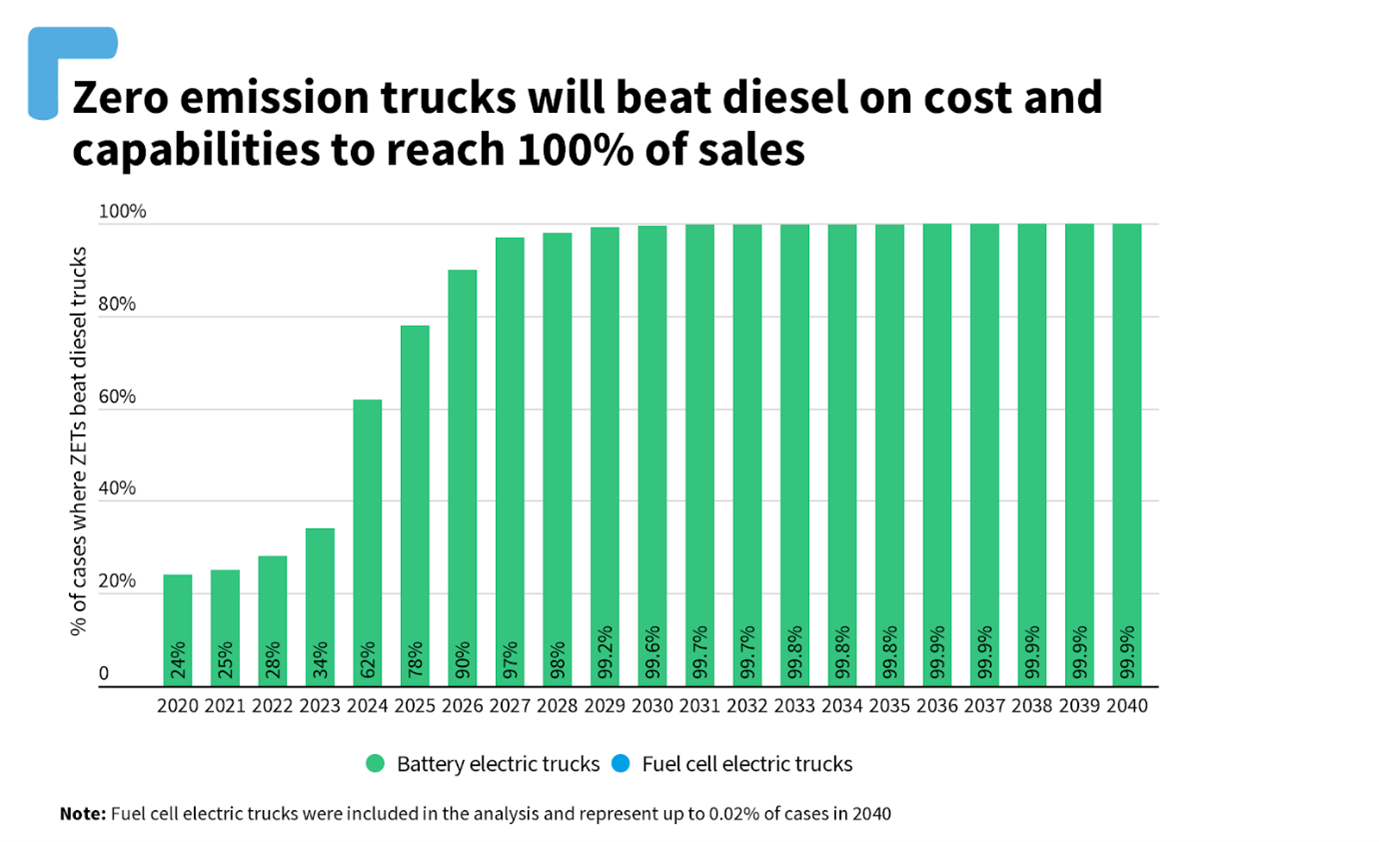 The new study also shows that electric freight trucks will match their diesel equivalents on distance travelled. It found that almost all freight trucks in Europe travel less than 800km (500 miles) a day – which is within the range of the newest battery electric trucks when charged during the legally required driver breaks.
The new study also shows that electric freight trucks will match their diesel equivalents on distance travelled. It found that almost all freight trucks in Europe travel less than 800km (500 miles) a day – which is within the range of the newest battery electric trucks when charged during the legally required driver breaks.
Even the biggest electric long-haul trucks will be able to carry the same weight of goods as diesel by 2030, because the weight of the battery is offset by removing the engine and by a 2-tonne extra allowance for zero emission vehicles under EU rules, said T&E.
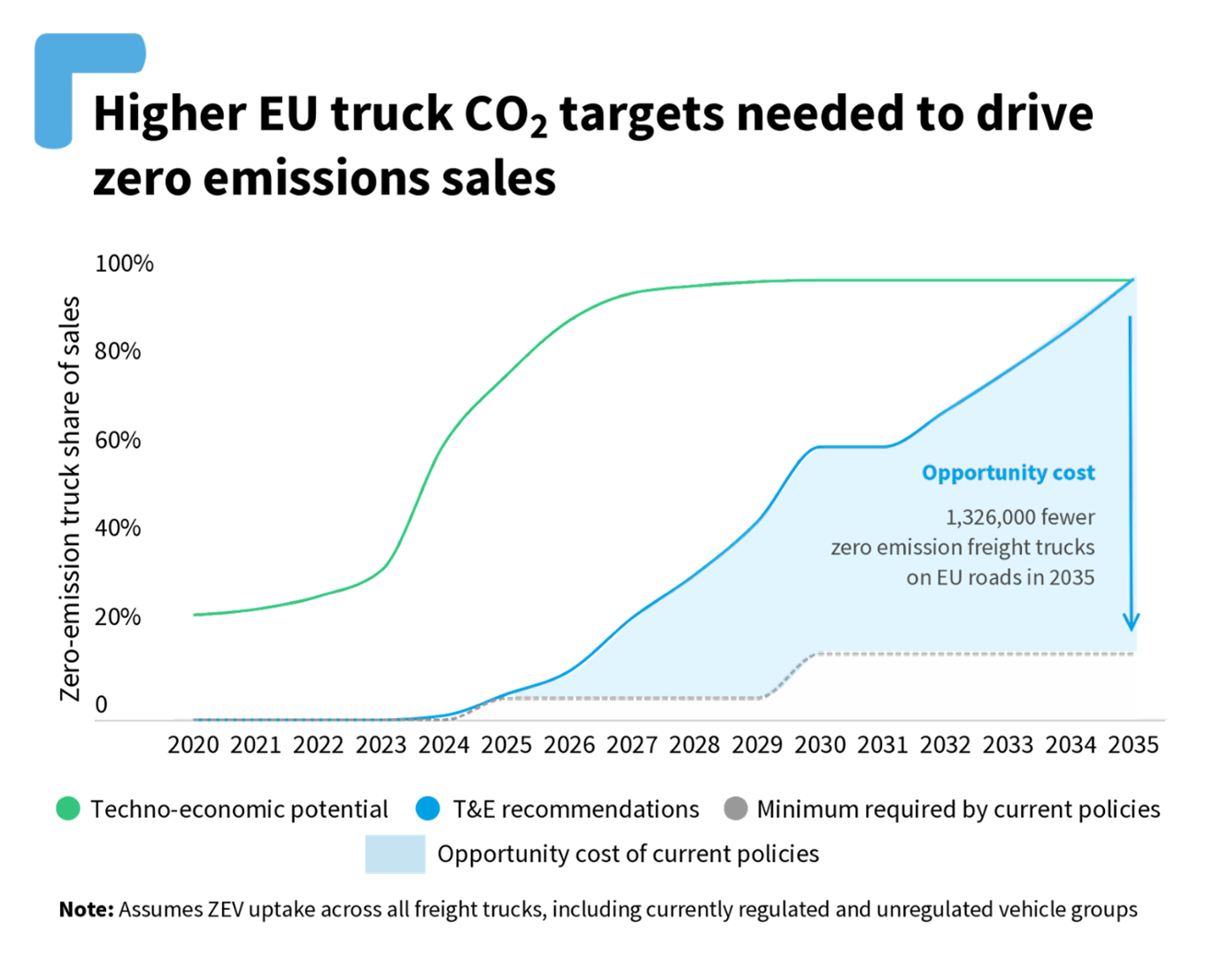 Wiebke Zimmer, deputy director of Agora Verkehrswende, said: "Progress towards climate neutrality in transport is not as fast as it needs to be. This makes it all the more important to fully exploit the technical and economic potential for emission-free road freight transport right from the start.
Wiebke Zimmer, deputy director of Agora Verkehrswende, said: "Progress towards climate neutrality in transport is not as fast as it needs to be. This makes it all the more important to fully exploit the technical and economic potential for emission-free road freight transport right from the start.
“In addition to ambitious CO2 standards for trucks, this also requires further measures such as purchase subsidies and CO2-based tolling."
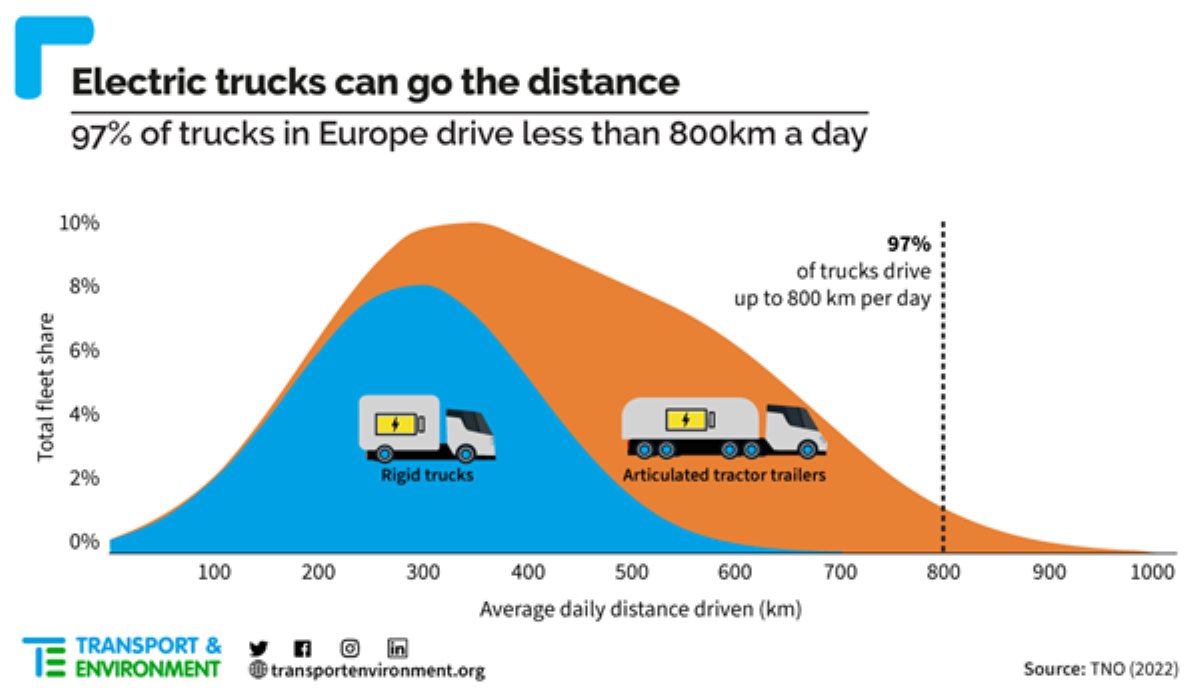



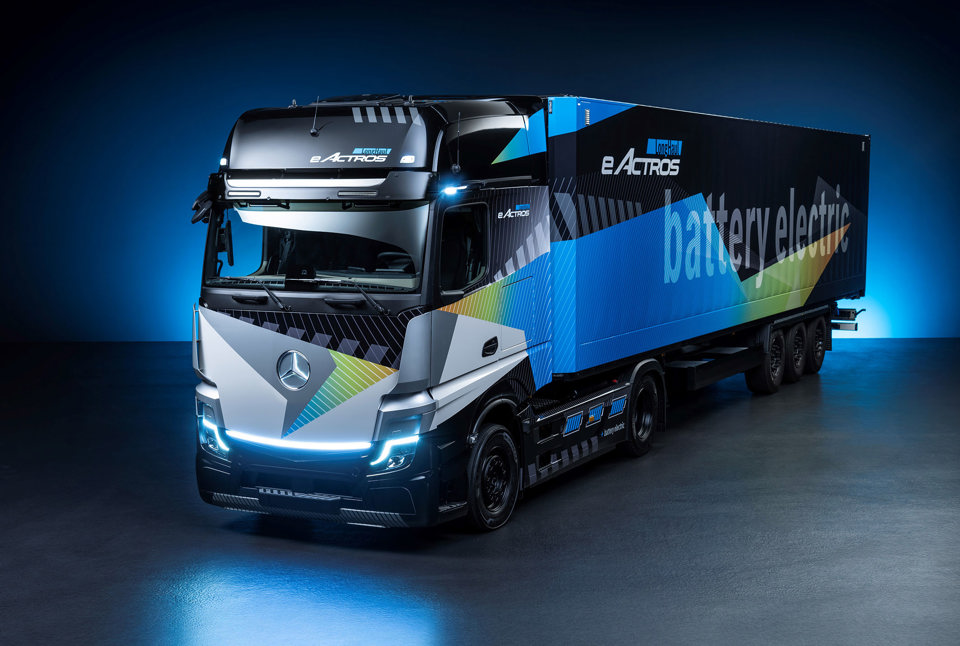
















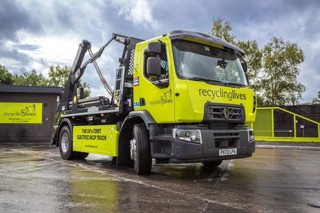
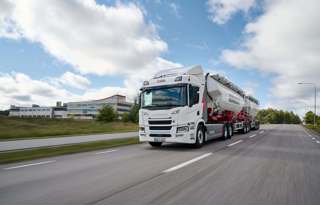
Login to comment
Comments
No comments have been made yet.